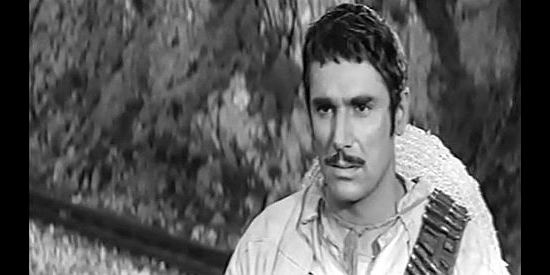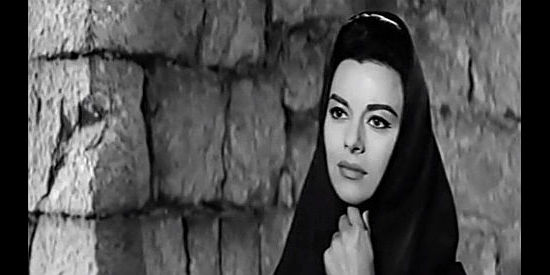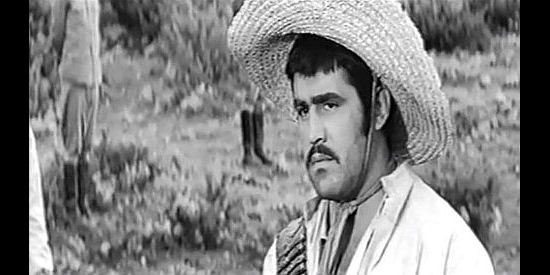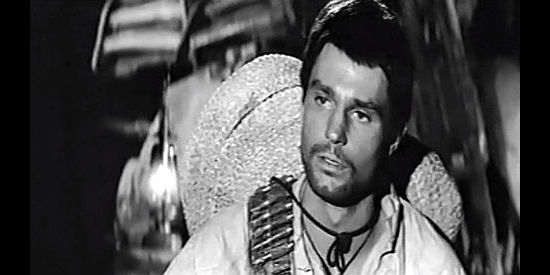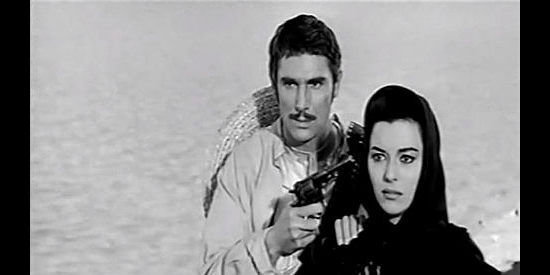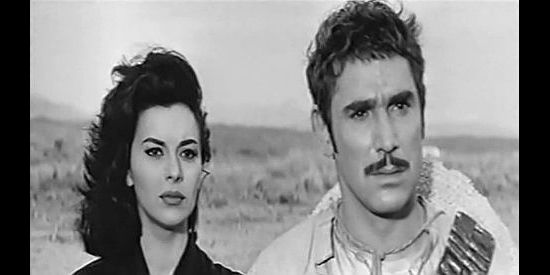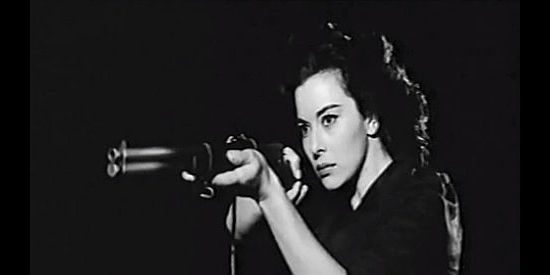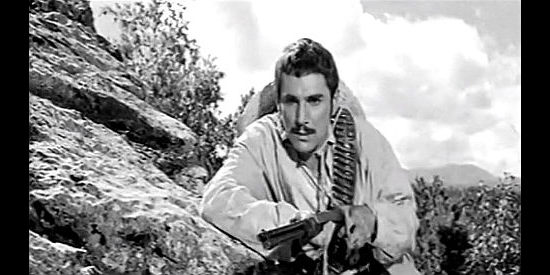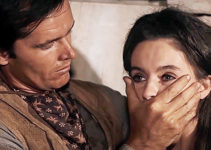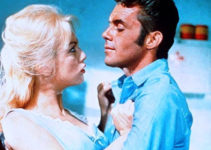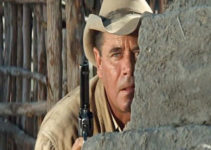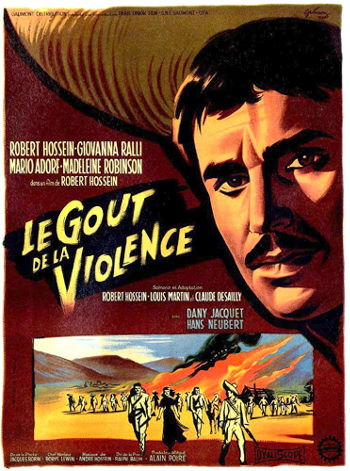 Director Robert Hussein plays Perez, a revolutionary officer tasked with attacking a government train and kidnapping the president’s daughter.
Director Robert Hussein plays Perez, a revolutionary officer tasked with attacking a government train and kidnapping the president’s daughter.
Seems revolutionary Gen. Guzman wants to trade her life for 50 of his men who have been sentenced to die.
Perez pulls off the mission and captures lovely Maria (Giovanna Ralli). Getting her back to the general might prove more difficult.
Chamaco, one of the men he takes along on the journey, would rather trade her for ransom so that they can ride off rich. Chico, the other, is stricken by Maria’s beauty.
And the government has offered such a handsome reward for the kidnappers than even some of the peasants Perez is fighting for might be tempted to turn on him.
Meanwhile, the government has dispatched three battalions, equipped with cannons, to quell Guzman’s revolution.
Intriguing but sometimes slow-moving film the begins with the kidnapping of Maria and follows Perez, Chamaco and Chico on their arduous journey to free their fellow comrades.
Along the way, there’s time for discussion and reflection on the meaning and the wisdom of the revolution in which they’re fighting.
Chamaco sees it as a personal quest for a better life. That’s why he has no qualms about returning Maria for a large ransom that will make him a rich man.
Perez argues that the revolution is being fought for all men, at least the downtrodden. Though later in the film his own sister, widowed by the war, questions that thinking the killing, she warns, will never end.
Hussein serves up several powerful scenes that seem to reinforce her view. And while this was made too early to be considered a Spaghetti Western and without the special flare of those films, the tone is very similar to “Cemetery without Crosses,” a true Spaghetti that Hussein would direct in 1969.
Directed by:
Robert Hossein
Cast:
Robert Hossein … Perez
Giovanna Ralli … Maria
Mario Adorf … Chamaco
Madeleine Robinson … Bianca
Dany Jacquet … Isa
Hans H. Neubert … Chico
Other credited cast: Reja Basic, Peter Dobric, Mate Ergovic, Sanda Fiderseg, Mia Oremovic
Runtime: 85 min.
aka:
Le goût de la violence
Music: Andre Hossein
Song: “Poderoso senor” sung by Severiano Alvarez
Memorable lines:
Perez, as Chamaco argues for ransoming the girl for money rather than trading her for prisoners: “The revolution isn’t a chance (to get rich). It’s a holy cause.”
Chamaco: “Yeah, big words. But they aren’t going to warm us up after your revolution kills us.”
Chamaco to Chico: “It’s not a woman we have with us; it’s dynamite. Dynamite that is worth a lot of gold and that we should trade before it’s too late.”
Perez’s sister: “It’s a game nobody can win? What did I win with your cause? And the children? All the men are in the mountain or at the cemetery. And the women no longer have tears to cry. And did you see the fields? Only misery and pain grow there.”
Perez: “So you think your husband died for nothing?”
Perez’s sister: “I wonder. Why was he fighting, after all? To make the children and me happier. But are we happier now?”
Perez: “He wasn’t only fighting for that.”
The sister: “Then for what? For the others?”
Perez: “Absolutely, for the others. And for you too. And for himself. For his dignity.”
The sister: “His dignity … Is it dignity that makes you fight a young lady?”
Trivia:
* In addition to appearing in more than 100 films as an actor, Hossein also directed 24 movies, starting in 1955. This and “Cemetery Without Crosses” (1969) were his only Westerns. He’d later direct TV remakes of “Les Miserables” and “Ben Hur.”
* The lovely Giovanni Ralli started acting on stage at age 13 and appeared in a couple of films as a child in the 1940s. This marked one of three Western appearances along with “The Mercenary” (1968) and “Cannon for Cordoba” (1970). Born in 1935, she announced her retirement from acting in 2015 after receiving an award for her career in films at the Taormina (Italy) Film Festival.
